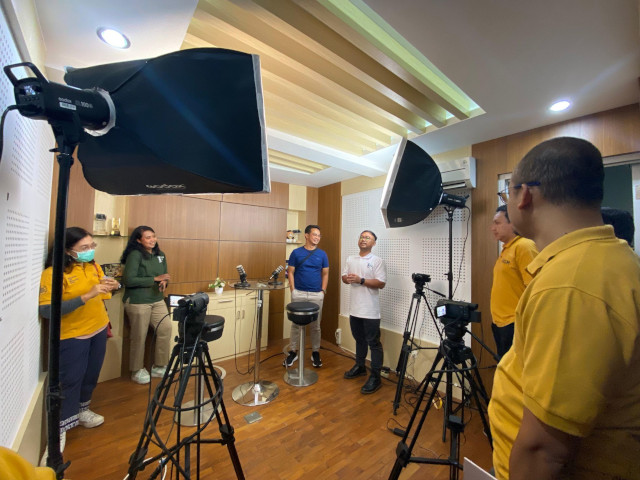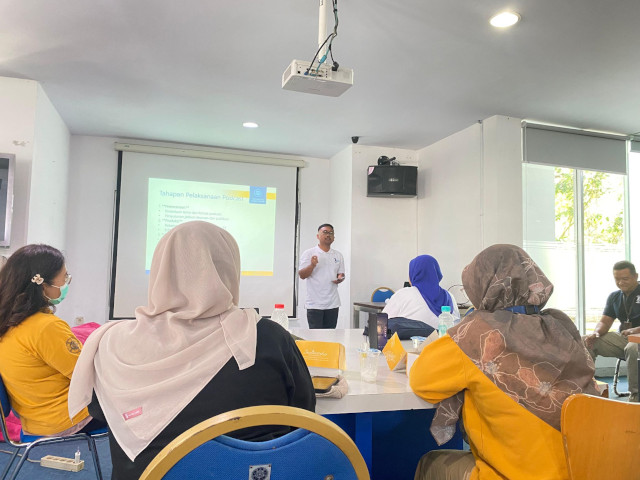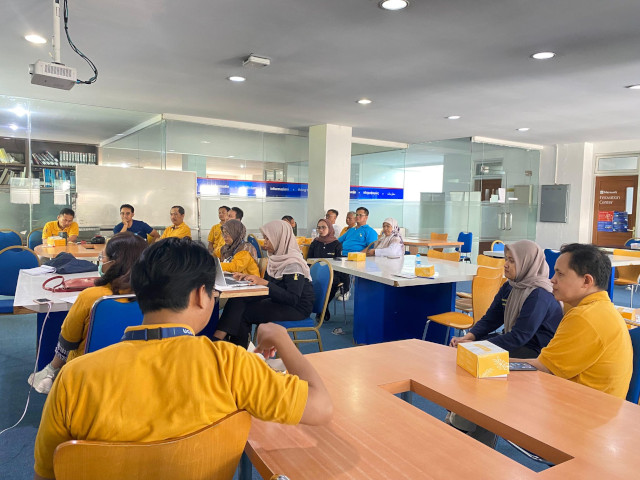In an effort to develop innovative and educational podcast content, several staff members of Universitas Gadjah Mada (UGM) Library and Archives visited the Faculty of Engineering (FT) UGM on Friday, January 17, 2025. The session was held in the Discussion Room on the 2nd floor of the FT UGM Library and was accompanied by the Head of the Data and Information Systems Division of the UGM Library and Archives, Yulistiarini Kumaraningrum, S.P., M.M.
 The visit aimed to gain insights and feedback from the FT UGM podcast team, who have extensive experience in podcast management. The FT UGM podcast team, consisting of Franky Argus Adiwena, S.T., Bagus Wijaya, S.I.P., Muhamad Naufal Fikri, S.T., and Mega Setyowati, shared valuable knowledge on podcast concepts, implementation stages, as well as the facilities and equipment required.
The visit aimed to gain insights and feedback from the FT UGM podcast team, who have extensive experience in podcast management. The FT UGM podcast team, consisting of Franky Argus Adiwena, S.T., Bagus Wijaya, S.I.P., Muhamad Naufal Fikri, S.T., and Mega Setyowati, shared valuable knowledge on podcast concepts, implementation stages, as well as the facilities and equipment required.
Muhamad Naufal Fikri emphasized the importance of crafting engaging and relevant content for listeners. “Podcasts are a flexible and highly effective medium for reaching a wider audience. The key is to have a strong narrative and continuously innovate to keep the content appealing to listeners,” he stated.
The podcast being developed by UGM Library and Archives is designed as a lifelong learning tool, aligning with Sustainable Development Goal (SDG) 4, which emphasizes quality education. This activity also reflects the library’s commitment to realizing SDG 17—partnerships for the goals—through collaborations with various stakeholders, including the FT UGM podcast team.
“This kind of sharing session is essential to ensure that the podcast we are developing is relevant and meaningful to the audience. We also hope to create a platform that supports interdisciplinary learning,” said Yulistiarini Kumaraningrum.


This initiative serves as a strategic starting point for UGM Library and Archives to manage podcasts as a medium that delivers information, education, and inspiration to a broader audience. Additionally, this collaboration strengthens institutional partnerships within UGM, fostering innovations that benefit both the academic community and society.
Contributor: Wasilatul Baroroh
